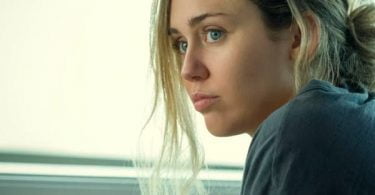The new BBC adaptation of DH Lawrence’s Lady Chatterley’s Lover has received dramatically mixed responses from critics, before its television release in September.
Critics in dispute
Firstly, there are the literary purists, who highlight that the word “cock” is only used once in the adaptation, while the words “fuck” and “cunt”, simply do not appear. Why are they disappointed by this? It is because the novel itself contains thirty-plus uses of the F-word, fourteen examples of the C-word and a total of twelve sex scenes, which have also been whittled down in the adaptation, to a great total of three.
However, it is the sex scenes that appear to be the centre of debate amongst critics. In fact, Hannah Furness, a reporter from the Telegraph said:
International business Times reporter Fiona Keating, claims that the new adaptation:
“is said to be so explicit that they are almost not suitable for broadcast.”
She is not alone in this opinion, with the Sun’s associate head of TV, Laura Armstrong, saying the show is:
History of the novel
As an English Literature graduate, who studied DH Lawrence’s Lady Chatterley’s Lover in a module on censorship, I have to wonder if such reactions are indeed the result of nudity, or whether this is the trickle-down effect of early perceptions of the novel. After all, the novel was the reason why Penguin publishers were charged with obscenity, under the Obscene Publications Act in 1960. However, Penguin had done so because they felt that the novel had “redeeming social merit”, which allowed the novel to be published under the new law. They published 200,000 copies and sold out on the same day.
Upon the charge of obscenity, a six-day trial began at the Old Bailey and became the focus of the media. When the prosecution could not compile a case against the novel, in direct contrast to the defence, who had 35 witnesses, the true nature of the novels obscenity became clear, as prosecution counsel Mervyn Griffith-Jones asked the shocking question: “Is it a book you would wish your wife or servants to read?”
Many view the case as being a fundamental moment in history. When Penguin were found to be not guilty, it marked, as Geoffrey Robertson stated in 2010:
“the first symbolic moral battle between the humanitarian force of English liberalism and the dead hand of those described by George Orwell as “the striped-trousered ones who rule”, a battle joined in the 1960s on issues crucial to human rights, including the legalisation of homosexuality and abortion, abolition of the death penalty and of theatre censorship, and reform of the divorce laws.”
Scandalous sex or a realistic love story?
Considering the novel’s history in this country, I highly doubt that the new adaptation is as shocking and scandalous as certain headline-grabbing journalists make out. The fact that screenwriter Jed Mercurio has already stated that his focus in writing the adaptation was the emotional love affair between Lady Chatterley and her groundskeeper Mr Mellors, already suggests a move away from previous adaptations which contained high levels of nudity.
With a majority of the swearing removed, sex scenes whittled down and a stronger focus on the complications of life and love, I doubt it will as erotic as Keating and Armstrong make out.
Personally I have always regarded the novel to be a tale of love across the class divide. It breaks taboos, empowers women and challenges the status quo.
“It is about this couple who get married, tragedy strikes, the husband is disabled and they have no sex life at all and she falls in love with someone across the class divide.” – Jed Mercurio, Screenwriter.
Lady Chatterley’s Lover will be broadcast one Sunday in September as a series of classic literary adaptations on BBC One. An air date has not been confirmed. Richard Madden plays Oliver Mellors and Holliday Grainger plays Constance Chatterley.








